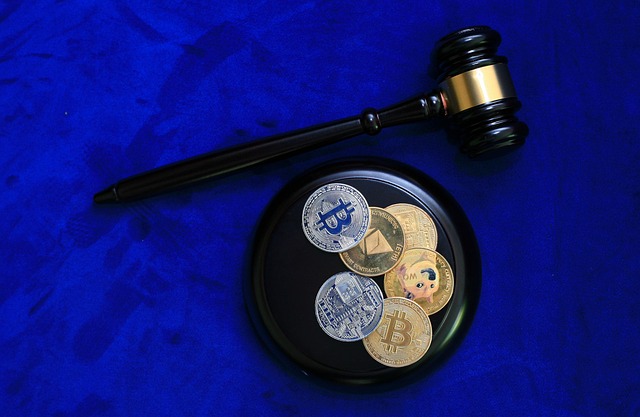Is Binance Legal in India for Cryptocurrency in 2025? Clear Guide
Author: Jameson Richman Expert
Published On: 2025-10-27
Prepared by Jameson Richman and our team of experts with over a decade of experience in cryptocurrency and digital asset analysis. Learn more about us.
Is Binance legal in India for cryptocurrency is a question many investors, traders, and newcomers ask in 2025. This article provides a clear, up-to-date (2025) explanation of the legal landscape, how Indian users can lawfully use global exchanges like Binance, what compliance and tax obligations exist, and practical steps to reduce legal and financial risk. You’ll also find resources, recommended platforms, and actionable checklists to help you trade safely and within Indian regulations.

Quick answer
Short answer: Using Binance from India is generally not illegal for Indian residents, but it is subject to Indian laws on taxation, anti-money-laundering (AML), and Know Your Customer (KYC) requirements. Binance is an international exchange and not a locally incorporated Indian exchange; that distinction matters for regulatory oversight, payment rails, and certain services. Indian users must comply with existing tax rules (including TDS/TCS and income reporting) and relevant RBI/Finance Ministry guidance.
Understanding the legal context: cryptocurrency regulation in India
To answer “is binance legal in india for cryptocurrency” precisely, you need to understand how India treats cryptocurrencies in law and policy. Key points:
- No blanket criminalization: As of 2025, India has not implemented a complete ban on cryptocurrency ownership or trading for retail users. Previous attempts at severe restrictions evolved into a regulatory approach focused on taxation and AML compliance.
- Taxation is enforced: Since the 2022 budget, India introduced a specific tax regime on virtual digital assets (VDAs) which includes cryptocurrencies — typically a flat 30% tax on gains and a 1% TDS (or higher) on certain transactions, along with requirements to report income from crypto on tax returns. See the Income Tax Department for official guidance: Income Tax Department.
- Banking and RBI oversight: The Reserve Bank of India (RBI) has historically been cautious about cryptocurrencies and retains oversight of banks and payment systems. Banks may place additional compliance requirements or limits on crypto-related flows. Check RBI notices for updates: Reserve Bank of India.
- Regulatory evolution: Indian crypto policy has been iterative — court decisions, Ministry of Finance consultations, and international standards (e.g., FATF) all shape national rules. For general background, the Wikipedia overview on crypto in India remains a useful summary: Cryptocurrency in India — Wikipedia.
What does “legal” mean in this context?
When people ask “is binance legal in india for cryptocurrency,” they are actually asking multiple questions:
- Is it legal for an Indian resident to buy, sell, or hold crypto on Binance?
- Is Binance permitted to offer services in India?
- Are INR deposits/withdrawals via Indian banks allowed for Binance users?
Answers vary by sub-question. Indian residents can generally hold and trade crypto, but the platform’s corporate registration, local regulatory permissions, and banking relationships determine which services are available. In practice, many international exchanges (including Binance) provide services to Indian users but do so under compliance constraints (KYC, P2P INR rails, limited fiat on-ramp features).

Binance’s status — key facts you should know
Binance is a globally distributed business with entities registered in several jurisdictions. Important points for Indian users:
- Binance is not typically a locally incorporated Indian exchange (subject to change as companies evolve). That means its regulatory home is often outside India, though it may operate Indian-facing services.
- International exchanges often offer P2P (peer-to-peer) INR trading or integrate with third-party fiat partners rather than direct INR bank deposits via a locally licensed bank relationship. This approach varies by time and regulatory changes.
- Regulators worldwide have scrutinized Binance, leading to compliance enhancements and sometimes restrictions. Indian users should monitor official statements from the Finance Ministry, RBI, and court rulings for any direct action affecting Binance operations in India.
Is Binance legal in India for cryptocurrency — practical legal checklist
Before using Binance (or any foreign exchange), follow this checklist to ensure you are operating legally and safely:
- Complete KYC on the platform: Provide verified identity documents so the exchange can meet AML/KYC obligations.
- Declare crypto income to the Income Tax Department: Report gains/losses and pay the applicable tax (e.g., 30% VDA tax) and TDS/TCS where applicable.
- Keep detailed records: Track buys, sells, transfers, staking rewards, airdrops, and cost basis for accurate tax filing.
- Use compliant fiat rails: Prefer P2P or officially supported INR on-ramps rather than unofficial third-party payment channels that could be blocked by banks.
- Review the exchange’s terms: Check whether Binance supports Indian users and what services may be restricted in India.
- Monitor news and government advisories: Regulators occasionally issue advisories or restrictions—stay informed via official government sources.
How Indian users commonly access Binance
Many Indian users access Binance using these methods:
- Spot trading on the global Binance platform: Trade crypto-to-crypto pairs after funding with crypto deposited from wallets or other exchanges.
- P2P INR trading: Use Binance’s P2P service to buy and sell INR-backed orders, where trades are settled via bank transfers between peer accounts.
- Fiat on-ramp partners: When available, Binance may partner with third-party payment providers to support INR deposits/withdrawals.
- Using stablecoins as intermediaries: Convert INR to stablecoins via local exchanges, then transfer to Binance for global pair access.
Each method has tradeoffs: P2P requires careful counterparty checks, third-party rails may be limited by banks, and using stablecoins requires extra transfer steps and fees.

Taxation and reporting — what every Indian crypto user must do
Tax rules are one of the most important drivers of “legal” use. Key obligations:
- Pay taxes on crypto gains: Under India’s VDA tax rules, profits from crypto trading are taxed — historically at a flat 30% rate for gains, with limited deductions allowed. Confirm current rates with the Income Tax Department: Income Tax Department.
- TDS/TCS and reporting: Certain transactions attract a 1% TDS at source or collection; exchanges and intermediaries may be required to report transactions to tax authorities.
- Report holdings on returns: Even if you hold crypto abroad (on Binance), Indian tax residents may have to disclose foreign assets and income under tax law.
- Keep supporting documents: Exchange statements, transaction histories, and KYC records are essential in case of tax audits.
Regulatory risks & enforcement to watch
Although trading is not categorically illegal, there are risks:
- Bank account freezes: If a bank suspects suspicious crypto-related transfers, it may freeze accounts pending inquiry.
- Exchange restrictions: Regulators could later restrict access to foreign exchanges or mandate local registration—this can affect service availability.
- Crackdowns on non-compliant platforms: Exchanges that do not adhere to KYC/AML, or local law, risk enforcement action. Stay up to date with government notifications.
How to check if an exchange is legal and safe for use in India
Use this step-by-step verification before using any exchange (Binance or others):
- Confirm the exchange’s KYC and AML policies on its website.
- Check if the exchange supports Indian users explicitly (review country restrictions).
- Look for local payment partners or INR on-ramps that comply with Indian banking norms.
- Search for local regulatory notices involving that exchange (Finance Ministry, RBI, courts).
- Read reviews and check custody/security practices (proof of reserves, audits, SOC reports).
- Prefer exchanges that provide clear tax reports or transaction export tools for India.

Alternatives to Binance for Indian users
If you prefer to use an exchange with stronger local presence or clearer INR rails, consider using reputable Indian or globally regulated exchanges. Examples (research and verify current status before using):
- Local Indian exchanges with INR on/off ramps (check their regulatory disclosures).
- Global exchanges that offer dedicated India support and INR channels.
- Decentralized exchanges (DEXes) for non-custodial trading — note tax and AML implications still apply.
For a comparison of leading global platforms and how to choose a trading platform in 2025, see this in-depth guide: Largest Crypto Trading Platform in the World 2025 — How to Choose.
Step-by-step: How an Indian resident can lawfully use Binance (practical example)
Below is a practical sequence you can follow to minimize legal and financial risk:
- Create and verify your Binance account: Use the official Binance registration link and complete full KYC to unlock higher limits and compliance features. Official registration link: Binance registration.
- Use secure devices and 2FA: Enable two-factor authentication (2FA), use hardware wallets for long-term storage, and avoid public Wi-Fi for trading.
- Deposit via compliant routes: If INR on-ramp is supported, use the official channels. Otherwise, consider converting INR to a stablecoin on a regulated Indian exchange and then transferring to Binance.
- Keep records of every transaction: Export trade history regularly and store invoices for tax reporting.
- Report gains/losses on your tax return: Use a qualified CA or tax software to report crypto income and remit taxes on time.
KYC, AML, and privacy considerations
Even if Binance is accessible, you must follow KYC and AML rules:
- Provide accurate identity and address documents.
- Be transparent with the source of funds if requested by the exchange.
- Understand that privacy coins or attempts to obscure transaction origins can raise red flags for both exchanges and regulators.

Safety and custody: where to store crypto
Use a layered security approach:
- Short-term trading: Keep only the funds you actively trade on exchanges.
- Long-term storage: Use hardware wallets (Ledger, Trezor) or reputable custody providers and withdraw sizeable holdings off exchanges.
- Non-custodial options: Learn about self-custody via wallets like MetaMask, Trust Wallet, or hardware devices.
Practical tips for minimizing legal and financial risk
- Consult a tax professional experienced in crypto taxation in India.
- Keep complete transaction logs and verify cost basis for each trade.
- Avoid using multiple unnamed third-party payment services—use official bank transfers or exchange-supported P2P rails.
- Monitor official Indian government communications and regulatory changes.
Frequently asked questions (FAQ)
1. Is Binance banned in India?
No blanket ban has been applied to Binance for Indian users as of 2025. However, availability of certain services and INR rails may change due to regulatory or bank-related constraints.
2. Will I be prosecuted for using Binance?
Merely using Binance is not a criminal offense provided you comply with Indian law—complete KYC, pay taxes, and avoid illicit activities. Criminal liability arises only from unlawful acts like money laundering, tax evasion, or using crypto for criminal ends.
3. Can I withdraw INR from Binance to an Indian bank?
That depends on whether Binance currently offers supported INR deposit/withdrawal channels in India. If direct INR rails are unavailable, many users use P2P or transfer stablecoins via a local exchange to convert to INR. Always use official methods to avoid frozen funds.
4. Should I use Binance or an Indian exchange?
Both have pros and cons. Indian exchanges often provide clearer INR support and may be easier for taxation and bank transfers. Global exchanges like Binance offer a larger selection of assets and services. Prioritize compliance, security, and your personal trading needs.

Resources and further reading
Official and high-authority sources to follow:
- Reserve Bank of India (RBI) for policy and banking notices: rbi.org.in
- Income Tax Department — guidance on reporting and filing: incometax.gov.in
- Ministry of Finance — policy announcements: finmin.nic.in
- Overview of crypto in India (background): Wikipedia: Cryptocurrency in India
Additional learning and analysis (useful articles)
Deep-dive and trading resources that complement this guide:
- How to evaluate and choose a major trading platform: Largest Crypto Trading Platform in the World 2025 — How to Choose
- Best apps to trade stocks — a practical guide, helpful if you want to diversify into equities: Best App to Trade Stocks — Practical Guide
- Mastering volume analysis for trading decisions: How to See Volume in Trading — Master Volume Analysis
- Example coin analysis and buy guide (FSN coin): FSN Coin Price Analysis & How to Buy
Suggested platforms and registration links
If you decide to open accounts for trading or comparison, here are official registration links (use these responsibly after doing your own research):
- Binance (official sign-up): Register on Binance
- MEXC (global exchange referral): Register on MEXC
- Bitget (referral link): Register on Bitget
- Bybit (referral link): Register on Bybit

Final recommendations — what you should do right now
- Verify the current legal environment from official sources (RBI, Income Tax Department, Finance Ministry) before making large trades.
- Complete KYC on exchanges you use and maintain precise records for tax filing.
- Prefer exchanges with strong compliance practices and reliable fiat rails; if you use Binance, understand how you will deposit and withdraw INR legally.
- Consult a tax advisor experienced with crypto in India to ensure accurate reporting and to optimize tax outcomes.
- Educate yourself continually — rules change. Use reputable analysis and comparison guides (see links above) to make informed choices.
Conclusion
To return to the central question: is binance legal in india for cryptocurrency? The practical answer in 2025 is that Indian residents can typically access and use Binance, but only within the boundaries of Indian law — particularly KYC, AML, banking rules, and tax obligations. Binance’s corporate structure and the availability of INR services can affect convenience and regulatory exposure, so always verify current platform status and comply with tax reporting. When in doubt, consult a qualified professional and prefer exchanges or methods that provide clear compliance with Indian regulations.
For deeper platform selection strategies and trading techniques that pair well with legal compliance, read the linked guides above and consider using exchanges with clear regulatory practices. Staying informed, compliant, and secure will keep your crypto activities both legal and sustainable.